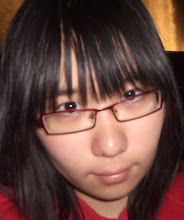1) Honorific(formal language)
In English, or many of other languages, there's no honorific words that's as delicate and complicated as that of Korean. For example, you call the person you're talking to "you," whether he's your friend or your dad, or your grandfather. In Korean there's appropriate word to call friends, teachers, and older people and they're always very careful about using the honorific. Typically you say formally to someone you first meet, and to someone who's older. This is why Koreans want to know how old the person is for the first thing. The honorific shows that Koreans bureaucratic thoughts: they strinctly keep the order of ranks in any form of group. (you can find out more on honorific on http://koreaworldwider.blogspot.com/2010/04/koreans-have-lots-of-honorificformal.html )
2) Segments
How many colors are there in a rainbow? The answer's two in Liberia, three in Zimbabwe, and seven in Korean. Knowing how Korean people devide out certain concepts may help you understand their culture, thoughts, and life.
e.g.1 there're the words to say three to four days before or after today in Korean.
그그저께(two days before yesterday)-그저께(a day before yesterday)-어제(yesterday)-오늘(today)-내일(tomorrow)-모레(a day after tomorrow)-글피(two days after tomorrow)-그글피(three days after tomorrow)
What's interesting's that there's no native word for "tomorrow."(내일來日 concists of chinese characters.) Some people argue that this means Korean people naturally lack the will to create out the future. Maybe, but how'd they explain there're ARE native words to say two or three days after today?
e.g.2 하늘(the sky)이 푸르다. 나뭇잎(the leaves)이 푸르다.
American people may never understand how could they think "sky" and the "leaves" have the same color, but that's how Koreans say. the adjective "푸르다" is used to say both blue and green. But I don't think that means Koreans are "dull" about colors. In Korean there're actually a tons of different words to express different colors. I think Korean ancestors didn't feel they need to distinguish between the sky and the leaves---They're all nature after all!
3) "Light" and "strong" words for sounds and actions
There're really a lot of mimetic words, and onomatopoeia. (There're many kinds that even natives don't know.) What's interesting's the "degree" of that sounds and actions can be felt different, which depends on which vowels you use.
There're two kinds of vowels: positive and negative.
positive: ㅏ(ah), ㅗ(oh)
negative: ㅓ(uh), ㅜ(ooh)
Postives sound light and bright, and negatives sound serious, heavy and dark.
e.g. 졸졸<줄줄, 똥똥하다<뚱뚱하다, 살랑살랑<설렁설렁, 팔락팔락<펄럭펄럭
Also you can say "stronger" consonents to emphasize.
e.g. 감감하다<깜깜하다<캄캄하다, 단단하다<딴딴하다<탄탄하다
Subscribe to:
Post Comments (Atom)

No comments:
Post a Comment